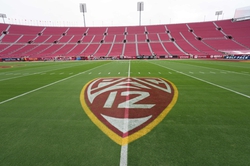Judge grants power to Pac-2 -- WSU, OSU

As predicted, we present you with the Pac-2.
Technically. Legally. For now.
A judge granted Oregon State and Washington State a preliminary injunction Tuesday in
their legal battle with 10 departing Pac-12 schools, giving the Pacific Northwest rivals
control of the conference and millions of dollars in assets.
So, Oregon State and Washington State could soon
determine how they will go about keeping the Pac-12 alive and what schools they will be
competing against next year.
One thing sure -- it will be complicated and it will not be easy.
A two-school conference, allowable on a temporary basis by the NCAA, is a possibility for
Oregon State and Washington State next year. But the two schools can’t just compete against
each other.
“We look forward to charting a path forward for the Pac-12 that is in the best interest of the
conference and student-athletes,” Oregon State President Jayathi Murthy and athletic
director Scott Barnes said in a statement. “Our intentions are to make reasonable business
decisions going forward while continuing to seek collaboration and consultation with the
departing universities.”
At a hearing in Whitman County Superior Court, not far from Washington State’s Pullman
campus, Judge Gary Libey ruled Oregon State and Washington State should be the only
members making decisions about Pac-12 business.
“Oregon State and Washington State will be the sole members of the board,” Libey said,
ruling quickly after hearing arguments for about 2 1/2 hours.
The outgoing Pac-12 schools say they will appeal the ruling.
“Nothing’s going to change in the Pac-12,” Libey said, ridiculously oversimplifying the realities.
“The athletes will still be competing. The schools will still be doing business, Pac-12 will still be doing business but will be
governed by the two universities that have not submitted their notice of withdrawal.”
Washington State athletic director Pat Chun and university president Kirk Schulz attended
the hearing, along with Barnes.
“We are pleased with the court’s commonsense decision today,” Chun and Schulz said in a
statement.
Oregon State and Washington State took the Pac-12 and Commissioner George Kliavkoff to
court in September and received a temporary restraining order, but the conference was
allowed to conduct day-to-day business as long as decisions had unanimous approval by all
12 schools.
With the span of a month this summer, eight Pac-12 schools announced they
would leave conference to join other Power Five leagues, starting in August of 2024.
Southern California and UCLA announced in 2022 they would leave for the Big Ten.
That left only Oregon State and Washington State committed to the Pac-12 long-term, and
officials at both schools decided their best path forward is to rebuild the conference.
They contend Pac-12 bylaws say schools that announce they are leaving relinquish the right
to be part of the board of directors and have no say in any decisions that could impact the
league’s long-term viability.
In court documents, Oregon State and Washington State claim they have reason to fear the
departing schools would vote — if allowed to convene as board members — to dissolve the
conference and distribute its assets among the group of 12.
They also say when USC and UCLA announced they were leaving, they were immediately
removed from the board and 24 meetings were conducted without them.
The judge agreed.
“Conduct is what counts and words don’t so much,” Libey said.
Eric MacMichael, an attorney for Oregon State, argued on behalf of both schools that the
departing members had no incentive to invest in the preservation of the conference.
The departing schools argued conference rules give them the right to be involved in the
running of the conference until they actually leave next year.
Really? Goes to show that rules and reality don't necessarily combine to make common sense.
They claim Oregon State and Washington State are trying to seize more than $400 million
in revenue the Pac-12 is set to receive this year, cutting out 10 members who are still
competing in and contributing to the conference.
Sounds reasonable to us. You can't bolt to go elsewhere to get money, leave the conference in a luand still and reap rewards.
“We are disappointed with the decision and are immediately seeking review in the
Washington Supreme Court and requesting to put on hold implementation of this decision,”
the departing schools said in a joint statement.
Yea, losing control of $400 mil is probably disappointing. Kind of falls into the category "have your cake and eat it, too," or "having it both ways."
Libey said Oregon State and Washington State would need to give notice of any decisions
that could impact the departing schools and warned that if they treat the outgoing members
unfairly, they could expect to be back in court.
Oregon State and Washington obviously must do something quickly about plans for next
season.
“We are trying to explore all options,” MacMichael said. “But we can’t do anything right now
because we’re shackled to 10 people who have no interest in seeing this conference survive
or move forward or even have a future.All they want is to get every last dollar that they can
out of the Pac-12 before they leave and join the Big Ten, the Big 12 or theACC. So we can’t
do anything in this state of paralysis that we’re currently in.”
A two-school conference, allowable on a temporary basis by the NCAA, is a possibility for
Oregon State and Washington State next year. But the two schools can’t just compete against
each other.